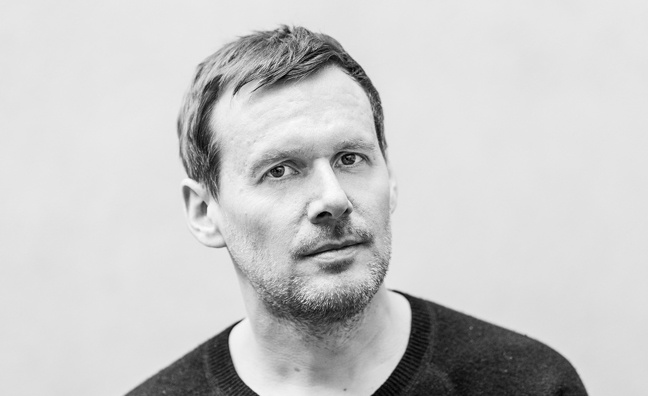The sync world is growing bigger and bigger with each passing year, and few in the industry know that better than composer Chris Clark.
Earlier this year, Clark (his musical alias forgoes his first name) signed a new deal with Decca Publishing, and scored Channel 4’s four-part drama Kiri, by BAFTA-winning writer Jack Thorne and starring Happy Valley’s Sarah Lancashire.
Clark has released nine albums as an artist, all through Warp, and his other score work includes the BAFTA-nominated mini-series The Last Panthers. He has also collaborated with choreographers including Melanie Lane at the Sydney Opera House, Wayne McGregor at the Roundhouse and Antony Hamilton.
Clark has also worked in theatre and has an extensive profile of remixes.
The latest issue of Music Week, out now, features a Q&A with Clark, who Danielle Wade, creative director, Decca Publishing describes as “Spearheading a new generation of composers”.
Here, we present the interview in full, read on for Clark’s thoughts on why sync matters to the biz, his future plans and more.
What does signing to Decca mean for your sync career?
"Decca have opened up the possibility for many collaborations. Collaborations are the perfect foil for the solipsistic creative paralysis that can creep in if you spend too long on solo albums, allow yourself to develop lazy habits and not challenge yourself by working with other people. I love collaborating as long as the intentions are pure and the work ethic is hardcore. There are some very talented directors out there, and I feel like I have a lot to contribute to film and potential that is finally being recognised."
What is the key to a good score?
"A customised palette, technically advanced, but not making a fetish of it so it obscures or gets in the way of the story. It's all about fleshing out hidden aspects of characters, I would chuck the word pathos in there too, I half know what it means. Something visceral and memorable that will age well and not sound like disposable sample library music."
Only use sample libraries if you are doing something truly unique with them. Otherwise you will become a maker of musical margarine.
Chris Clark
How important is the sync world to the music industry?
"Things have changed massively in that artists don't really sell records anymore. You have to adapt and evolve. I would just say get involved. Working to picture tests you as nothing else can really. I wouldn't say writing sync and being a solo artist are mutually exclusive things. They reinforce each other. The intention to write solo records is honed by collaborations, you realise what you can get away with more and working on sync forces you to learn new ways of writing. And under a deadline too, which I find invigorating."
What are you working on next?
"About four albums and making the Kiri album something more than a series of cues. It sounds like Body Riddle [Clark’s 2006 album] 2 at the moment [laughs]."
What advice would you give to any musician looking to get involved in sync?
"Record as much as you can yourself and only use sample libraries if you are doing something truly unique with them. Otherwise you will become a maker of musical margarine."
To subscribe and never miss a music biz story, click here.









